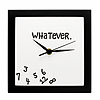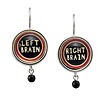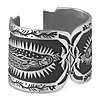
Track every penny you spend. The authors of Your Money or Your Life: Transforming Your Relationship with Money and Achieving Financial Independence
Record your transactions as soon as possible. Don’t judge yourself - just record. Tracking your spending is an exercise in data collection; it’s not the appropriate time to change your habits.
Develop a budget. After you’ve tracked your spending for a few weeks (or months), use the data you’ve collected to develop a budget. According to The Millionaire Next Door
Start an emergency fund. Open an online high-yield savings account and add $20 or $50 to your account ever time you get paid. In The Total Money Makeover: A Proven Plan for Financial Fitness
Get out of debt . Are you struggling under a heavy debt load from credit cards or student loans? Make it a priority to unload some of this this burden in 2008. If you have the mental discipline, you’ll save money by paying down your high-interest debt first. But if you’ve tried that method before and failed, consider using a debt snowball. Pay your debts starting with the smallest balance first. Here’s how: Order your debts from lowest balance to highest balance. Designate a certain amount of money to pay toward debts each month. Pay the minimum payment on all debts except the one with the lowest balance. Throw every other penny at the debt with the lowest balance. When that debt is gone, do not alter the monthly amount used to pay debts, but throw all you can at the debt with the next-lowest balance. The debt snowball can give you awesome psychological payoffs, keeping you motivated to stay in the game. It’s not mathematically ideal, but it worked for me (and for many others besides).
Open a retirement account. If you’re young, you probably don’t think you need to start a retirement account. You’re wrong. No matter how old you are, now is the time to begin saving for retirement. Compound returns favor the young, and in a big way! (Here’s an illustration of the cost of waiting one year.) Don't understand the value of retirement accounts: read a bit more in The Automatic Millionaire : A Powerful One-Step Plan to Live and Finish Rich
Spend less than you earn. This is the fundamental money skill. It’s common sense, yet many people never learn do it. Only by spending less than you earn can you hope to build wealth. This is easier to do if you track your spending or develop a budget, but those steps aren’t completely necessary. Even if you do nothing else in this list, spending less than you earn can put you ahead of your peers. (To continue this article, click here.)







































































































No comments:
Post a Comment